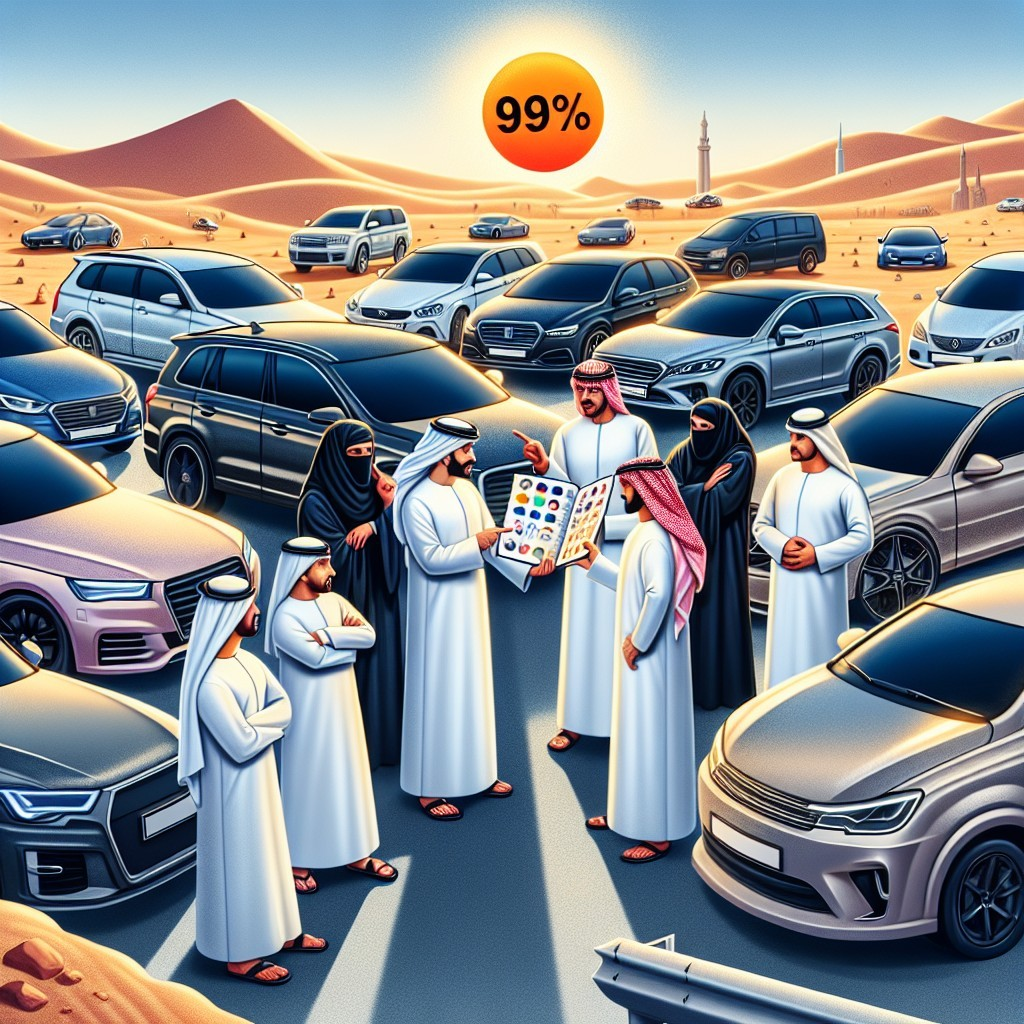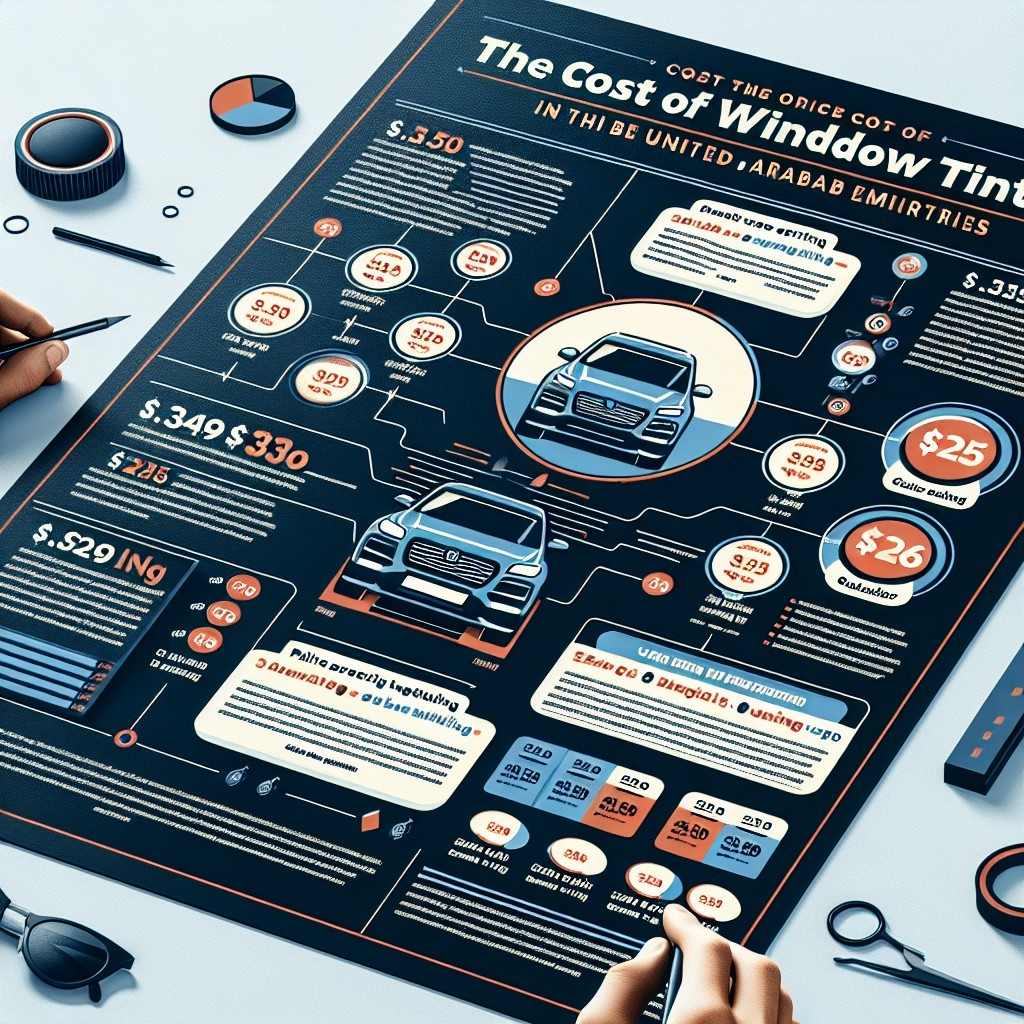As the sun blazes down on the vast desert landscapes of the United Arab Emirates‚ drivers and car owners are increasingly turning to window tinting as a solution to shield themselves from harmful ultraviolet (UV) rays. But amidst the array of options available‚ a common question arises: can tint really block 99% of UV? In this article‚ we delve into the science behind window tinting‚ the regulations in the UAE‚ and what car owners should know before making their choice.
The Science of UV Protection
Ultraviolet rays‚ which are classified into UVA and UVB‚ are a significant concern for anyone spending extended periods outdoors. UVA rays penetrate the skin deeply and are primarily responsible for premature aging‚ while UVB rays are associated with sunburn and can increase the risk of skin cancer. The right window tint can provide a barrier against these harmful rays.
High-quality window tints often boast a UV blocking capability that can exceed 99%; This is achieved using advanced materials that are engineered to reflect and absorb UV radiation. For instance‚ ceramic tints‚ which are among the best in the market‚ utilize nanotechnology to provide superior UV protection without compromising visibility or aesthetics.

Benefits of UV-Blocking Tint
- Skin Protection: Regular exposure to UV rays can lead to skin damage and increase the risk of skin cancer. A high-quality tint helps mitigate these risks by blocking harmful rays.
- Interior Protection: UV rays can cause upholstery to fade and deteriorate over time. Tinted windows help preserve the interior of your vehicle‚ keeping it looking new for longer.
- Temperature Control: Tints can reduce the amount of heat entering a vehicle‚ leading to a more comfortable driving experience‚ especially in the sweltering UAE heat.
- Improved Privacy: Tints can enhance privacy and security‚ making it harder for prying eyes to see inside your vehicle.
Understanding Regulations in the UAE
Before opting for window tinting‚ UAE drivers must be aware of the legal regulations surrounding tint levels. The Emirates Authority for Standardization and Metrology (ESMA) has specific guidelines in place to ensure safety and visibility. Typically‚ the front windshield must allow at least 70% of light to pass through‚ while the side and rear windows can have darker tints.
While many products claim to block 99% of UV rays‚ it’s essential to choose a tint that complies with local laws. Non-compliance can lead to fines and may require removal of the tint. Always check with certified installers who use approved materials.
Choosing the Right Tint
With a myriad of options available‚ selecting the right tint can be overwhelming. Here are a few tips to guide UAE drivers:
- Research Brands: Look for reputable brands known for their UV protection capabilities. Reading reviews and getting recommendations can help narrow down your choices.
- Ask for Certifications: Ensure that the tint you choose has been tested and certified for UV protection. Look for products that specify their UV blocking percentage.
- Consult Professionals: Seek advice from professional installers who can recommend the best options tailored to your needs and comply with local regulations.
As the UAE continues to experience soaring temperatures‚ the adoption of UV-blocking window tints may not just be a luxury but a necessity for the health-conscious driver.


Great insights on interior protection as well! Keeping my car
This article beautifully explains the importance of window tinting in the UAE. I had no idea about the different types of UV rays and how they affect our skin!
The benefits of UV-blocking tint are well outlined. I’m definitely considering getting my car tinted after reading this!
Fantastic read! The emphasis on skin protection really resonated with me. It’s crucial to take care of our skin, especially in such a sunny climate.
I found the section on ceramic tints particularly interesting. It
I appreciate how the article breaks down complex information into easy-to-understand points. Very informative for anyone looking to tint their windows.